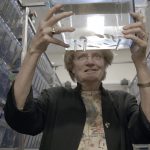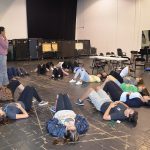As public health, migration and climate crises persist around the globe, younger generations, including current college students, will soon take on the burden of these issues.

A panel of experts in human rights and international development shared advice for students hoping to work in such fields during a Zoom conversation Tuesday organized by the Frederick S. Pardee School of Global Studies and the Boston Network for International Development.
Points of discussion ranged from networking tips to the pursuit of advanced degrees, as well as the unique circumstances by which each panelist carved their own path in the field of human rights.
Retired U.S. ambassador Mark Storella, a professor of diplomacy at Pardee, moderated Tuesday’s event. Storella said students who pursue a variety of career paths can learn to apply their passion for human rights to their work.
“There are many different ways to weave your interest in human rights into your career, even if you’re not working for an NGO or for an international organization,” Storella said in an interview. “Human rights plays an important role in refugee issues, important role in climate issues and health issues.”
Brian Concannon is the executive director of Project Blueprint, a volunteer program that connects workers to nonprofits where their demographics are underrepresented. During the panel, he said he believed any expertise, from satellite operation to liberal arts communication skills, can be of use when working in international development.
“You can never learn enough about how to write,” Concannon said. “That’s something that’s ongoing. It’s something I learned in school, something I’ve learned every day on the job in the 30 years since I left law school.”
On the other hand, Seth Purcell, an asylum attorney at the PAIR Project, said he didn’t envision himself becoming a lawyer until after he gained international experience and saw the benefits of working one-on-one with clients facing human rights crises.
Purcell’s decision to go to law school, he said, was based on the opportunities for practical experience offered by a master’s program, through which he could work with individuals and have a direct impact on their futures.
“At the end of the day, people are less interested in where you went to school than what you’ve done, what you’ve been exposed to, what you’re bringing to the table,” Purcell said. “I knew that I wanted to tackle similar issues again from this legal perspective, and to me, the natural nexus was asylum.”
Cynthia Gabriel, senior director of organizing and activism at Amnesty International, said international experience is a key resume-builder for students and young professionals. For students of international relations, traveling and working abroad is integral to a global career in human rights.
The benefits of getting involved in local advocacy work as a student can also translate to an international career, Gabriel said. Skills students build at this grassroots level, she said, can be transitioned into foreign-policy work.
“Next thing you know, you’re targeting foreign governments, not just our own government,” Gabriel said. “So, the advocacy skills are really important. Communication skills are key.”
Shifting to practical career advice, 2006 College of Arts and Sciences alumna Diana Kearney, senior legal and shareholder advocacy advisor at poverty-focused nonprofit Oxfam America, said there’s value in building personal connections with potential employers.
Kearney recalled an instance during her law school studies in which she met the vice president of her future employer, Oxfam, on a flight to Boston, where they discussed a paper she was writing on international human rights law.
By the end of their conversation, he introduced himself and offered to take a look at her resume, eventually leading to her employment at Oxfam as a legal advisor.
“My knee-jerk reaction was to be like, ‘Tell this guy to shut up, I’m busy, I’m working!’” Kearney said. “The only lesson I think I would draw to that is just to be friendly to everyone and be kind to people and to be working hard when you think no one is looking.”
Purcell said he believes remaining open to unexpected career opportunities and getting input from those already working in fields of interest is essential for anyone just starting out in international development.
“Be open to deviations from the path, because this is a field that there are certainly seemingly regimented steps in some areas,” Purcell said. “There’s also a lot of space to be creative and to apply knowledge and skills in one area to a second area, a third area.”
For students on the verge of graduation who are concerned about employment opportunities, Kearney advised they continue to persevere in the job hunt.
“It’s frustrating, and you can often feel like you are sending your resume into a black hole because you’ll just never hear anything back and that can be really disheartening,” Kearney said in an interview. “Being a little hard-headed and relentless is what allowed me to eventually find positions.”
Storella said in an interview a supply of young minds with a commitment to human rights is not a problem at BU, where students are “both idealistic and realistic” about the global dilemmas the world faces today.
“To me, that means they want to pursue ideals in their careers, but they also recognize that in some cases there are going to be limitations,” Storella said. “I don’t think that that has made them shy about trying.”




